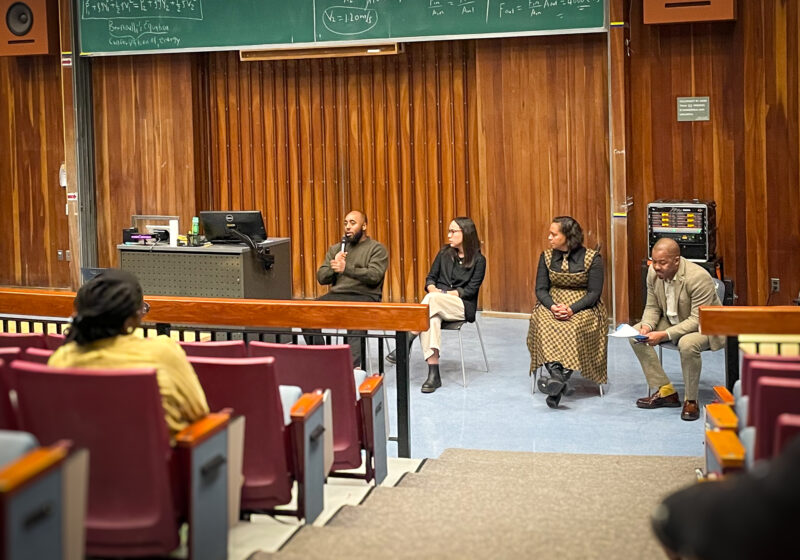Raoul Peck’s “I Am Not Your Negro,” now playing at the Little Theater, is a meditation on and continuation of writer James Baldwin’s investigation into the black American experience.
In the wake of the assassinations of Malcolm X, Martin Luther King Jr., and Medgar Evers, Baldwin set out to write a novel on the lives of these three men, with whom he shared close connections because of their pursuit of justice for African Americans. In a letter to his literary agent, Baldwin said he wanted the lives of these three men “to bang against and reveal one another as they did in life.”
By the time Baldwin died in 1987, however, the novel was only partially completed.
Baldwin’s literary voice is not easily matched, yet Peck manages to amplify the power of Baldwin’s words. Through a somber narration by actor Samuel L. Jackson, scenes from the film easily transition from excerpts of Baldwin’s books to archival speeches and interviews with Baldwin. These different elements are woven together to create a stunning portrayal of Baldwin and his thoughts.
As the audience listens to the narration, various images and clips play on the screen: the violence against black protesters at the Greensboro sit-ins, angry white crowds shouting slurs and toting anti-black signs against the desegregation of Little Rock Central High School, and Black Lives Matter protesters facing the brutality of police officers. These images force the audience to come face-to-face with the ongoing oppression suffered by generations of African-Americans at the hands of white Americans.
We also see scenes from classic films—like “King Kong,” “A Raisin in the Sun,” and “In the Heat of the Night,” juxtaposed with archival and current footage of protest and police violence. Meanwhile, we hear Baldwin’s words spoken by Jackson: “The story of the Negro in America is the story of America. It is not a pretty story.”
One of the first memories that Baldwin has of recognizing himself as a black person within the context of America was through media, specifically in westerns. It took some time for young Baldwin to realize that by cheering for the hero—the white man—he was unknowingly rooting against himself.
In “I Am Not Your Negro,” Baldwin explains the ways the entertainment industry created a narrative in which white characters were always the heroes and the effect this had on him.
“I despised and feared those heroes because they did take vengeance into their own hands. They thought vengeance was theirs to take, and yes, I understood that. My countrymen were my enemy,” Baldwin says.
Baldwin’s deconstruction of American culture may help us analyze our current political and cultural atmosphere. When he speaks about films he is speaking about what they reveal about us as a nation: our fears, hopes, beliefs, ideologies.
“Not everything that is faced can be changed,” Baldwin says, “but nothing can be changed until it is faced.”




